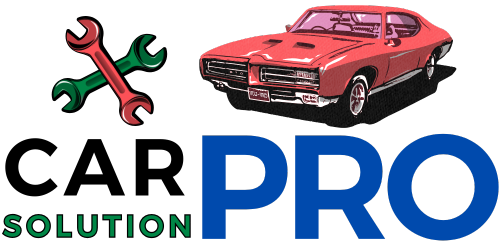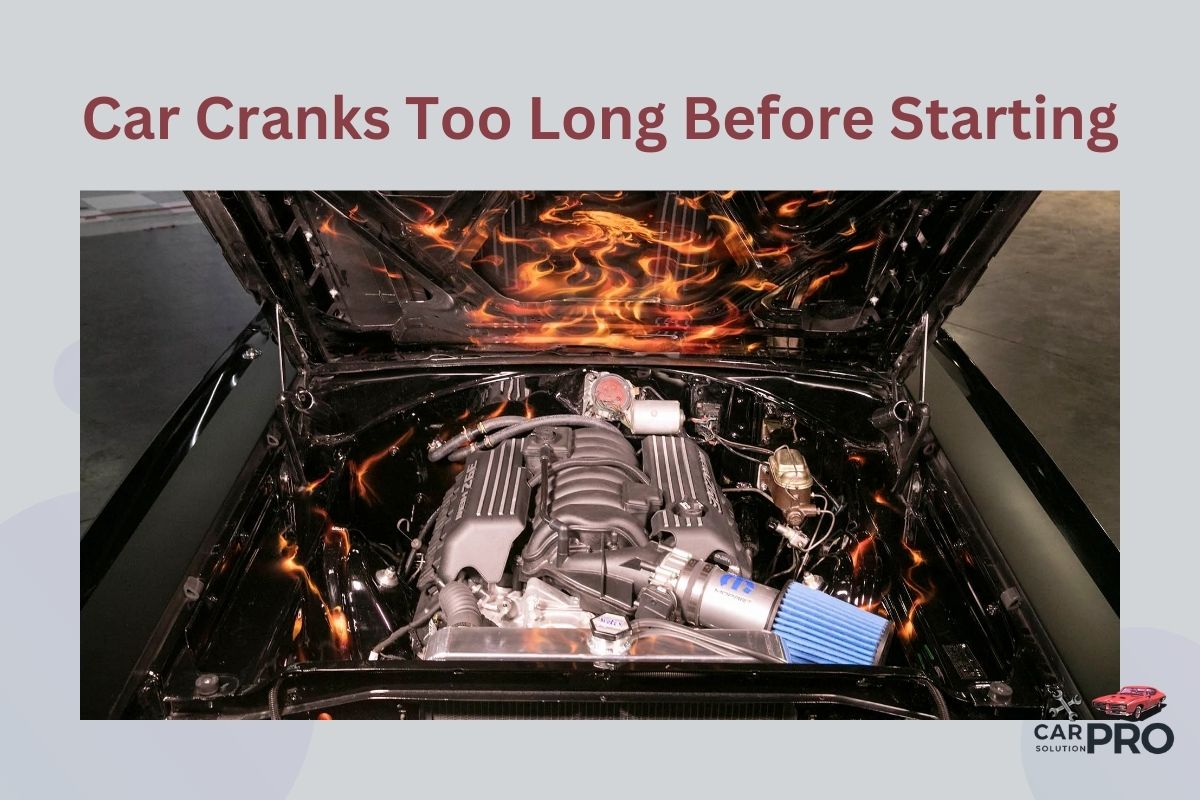When your car cranks for a long time before starting, it can be frustrating and concerning. This issue often points to problems in the engine’s starting system or fuel delivery. A car that cranks too long before starting may have issues with its fuel pump, battery, spark plugs, or sensors.
Many drivers experience this problem at some point. It might happen occasionally or become a regular occurrence. The causes can range from simple fixes like a dirty mass airflow sensor to more complex issues involving the fuel system or engine components.
Understanding the reasons behind extended cranking can help you address the problem quickly. It’s important to diagnose and fix the issue promptly to prevent further damage to your vehicle and ensure reliable starting.
Key Takeaways
- Extended cranking often indicates fuel system or electrical issues
- Regular maintenance can prevent many causes of slow starting
- Prompt diagnosis and repair is crucial for preventing further damage
Basics of Engine Starting
Starting a car engine involves several key components working together in a precise sequence. When everything functions properly, the engine should start quickly and smoothly.
Understanding the Starting Process
When you turn the key, the starter motor engages. This spins the engine’s crankshaft, moving the pistons up and down. At the same time, the fuel system sends gas to the cylinders.
The spark plugs create sparks to ignite the fuel-air mixture. This causes small explosions that power the engine.
If any part of this process fails, the engine may crank longer than normal or fail to start. Common issues include weak battery power, fuel delivery problems, or faulty spark plugs.
Components Involved in Engine Ignition
The main parts in engine starting are:
- Battery: Provides electrical power
- Starter motor: Turns the engine over
- Alternator: Recharges the battery
- Fuel pump: Delivers gas to the engine
- Spark plugs: Ignite the fuel mixture
- Ignition system: Controls spark timing
Faulty fuel pumps can cause long cranking times. A weak battery may not provide enough power to turn the engine quickly.
Sensors like the mass airflow sensor and coolant temperature sensor also play important roles. They help the car’s computer adjust the fuel-air mixture for optimal starting.
Regular maintenance of these components helps ensure quick, reliable starts. This includes keeping the battery charged, changing spark plugs as needed, and addressing any warning lights promptly.
Common Causes of Extended Cranking
Cars that crank for too long before starting often have issues with fuel delivery, ignition systems, or battery and starter components. These problems can make it harder for the engine to fire up quickly.
Fuel Delivery Issues
A faulty fuel pump can cause extended cranking. When the pump isn’t working right, it can’t send enough fuel to the engine.
Clogged fuel filters also slow down fuel flow. This makes it harder for the engine to get the gas it needs to start.
Low fuel levels in the tank can sometimes lead to longer cranking times. The fuel pump may struggle to pull up the last bits of gas.
Ignition System Problems
Worn spark plugs can’t create a strong enough spark to ignite the fuel mixture. This leads to more cranking before the engine starts.
A bad ignition coil might not generate enough voltage for the spark plugs. This can cause weak sparks and longer starting times.
Faulty spark plug wires can leak electricity. When this happens, not enough power reaches the plugs to start the engine quickly.
Battery and Starter Motor Concerns
A weak battery may not have enough power to turn the engine over quickly. This results in slow cranking and delayed starts.
Corroded battery terminals can block the flow of electricity. Clean connections are key for fast starts.
A worn Bendix gear in the starter motor might not engage properly with the flywheel. This causes the starter to spin without turning the engine.
Starter motors with failing solenoids may not consistently activate. This leads to intermittent cranking issues and slow starts.
Diagnostic Approaches
When a car cranks too long before starting, it’s crucial to pinpoint the cause. A systematic approach helps identify the problem quickly and accurately. This involves basic checks and more advanced tests.
Preliminary Checks
Start with simple visual inspections. Check the fuel gauge to ensure there’s enough gas in the tank. A low fuel level can cause extended cranking.
Next, examine the battery terminals for corrosion or loose connections. Clean or tighten them if needed. Test the battery voltage with a multimeter. A reading below 12.6 volts may indicate a weak battery.
Inspect spark plug wires for damage or disconnection. Look for visible cracks or wear. Check the air filter for excessive dirt or clogs. A clean air filter ensures proper air flow to the engine.
Advanced Diagnostic Tests
Use an OBD-II scanner to check for error codes. These codes can point to specific issues like faulty sensors or fuel system problems.
Test the fuel pressure using a fuel pressure gauge. Low pressure may indicate a weak fuel pump or clogged fuel filter. Measure the engine compression with a compression tester. Low compression in one or more cylinders can cause hard starting.
Check the starter motor’s current draw. Excessive current could mean a failing starter. Use a spark tester to verify spark plug function. Weak or no spark suggests ignition system issues.
Inspect the mass airflow sensor for dirt or damage. Clean it if necessary. Test the coolant temperature sensor with a multimeter. An inaccurate reading can affect the engine’s starting behavior.
Solutions and Repairs
When your car cranks too long before starting, there are several fixes to try. These range from simple maintenance tasks to more complex repairs. The key is to identify the root cause and address it properly.
Servicing the Fuel System
A clogged fuel filter can cause long cranking times. Replace the fuel filter according to your car’s maintenance schedule. This is often an easy DIY job.
Check the fuel pump. A weak pump may not deliver enough fuel to start the engine quickly. Listen for a humming sound when you turn the key to “on”. If you don’t hear it, the pump might be faulty.
Clean the mass airflow (MAF) sensor. A dirty MAF sensor can disrupt the air-fuel mixture. Use a special MAF cleaner spray and follow the instructions carefully.
Inspect fuel injectors for clogs or leaks. Clean them with a fuel injector cleaner additive or have a professional service them if needed.
Repairing Ignition Components
Worn spark plugs can cause slow starts. Replace them at the intervals specified in your owner’s manual. Use the correct type and gap for your engine.
Check spark plug wires for damage or looseness. Replace any that show signs of wear or corrosion.
Inspect the ignition coil. A failing coil can cause weak sparks. Test it with a multimeter or have a mechanic check it.
Examine the distributor cap and rotor (if your car has them). Look for cracks or corrosion. Replace if damaged.
Battery and Starter Maintenance
Test the battery voltage. A weak battery may not provide enough power to start quickly. Clean the battery terminals and tighten connections.
Check the starter motor. A failing starter can cause long cranking times. Listen for clicking sounds when you turn the key. If you hear rapid clicking, the starter may need replacement.
Inspect battery cables for corrosion or damage. Clean or replace as needed. Ensure all connections are tight.
Test the alternator. A bad alternator can lead to a drained battery. Have it checked if your battery keeps losing charge.
Preventative Measures
Taking steps to prevent long cranking times can save you from frustrating mornings and potential repair costs. Regular upkeep and knowing what to watch for are key to keeping your car starting smoothly.
Regular Maintenance Schedule
Stick to your car’s recommended service intervals. Change the oil and filter as directed in your owner’s manual. This keeps engine parts well-lubricated and running smoothly.
Check and replace the air filter when it’s dirty. A clogged filter can cause starting issues. Inspect spark plugs and replace them at the suggested mileage.
Keep the battery terminals clean and tight. Corrosion can prevent proper electrical flow. Test the battery’s charge level yearly, especially before winter.
Replace the fuel filter as recommended. A clogged filter makes the fuel pump work harder. Have a mechanic check the fuel pressure if you suspect pump issues.
Early Detection Tips
Listen for changes in your car’s starting sound. If it takes longer to turn over, pay attention. This could signal a weak battery or starter motor problems.
Watch for dimming headlights when starting. This often means the battery is losing power. Check if dashboard lights flicker during startup.
Pay attention to how your car runs after starting. Rough idling or stalling might mean fuel system issues. Note any new noises or vibrations.
If the engine hesitates before catching, it could be a sign of spark plug wear. Keep track of your mileage between oil changes and tune-ups.
Use your nose. Unusual smells during startup can indicate problems. A strong fuel odor might mean leaky injectors or other fuel system issues.
Frequently Asked Questions
Cars can experience starting issues for various reasons. Problems with fuel delivery, ignition systems, and battery health often contribute to extended cranking times. Weather conditions and periods of inactivity may also impact how quickly an engine turns over.
What are common reasons for a car to struggle to start even though it runs fine afterwards?
A clogged fuel filter or faulty fuel pump can cause prolonged cranking. These issues restrict fuel flow to the engine, making it harder to start. Bad spark plugs or a weak battery may also lead to starting difficulties.
Why does my car have a long crank time when the engine is cold?
Cold temperatures make engine oil thicker, increasing resistance. This requires more effort from the starter and battery. A faulty coolant temperature sensor can also mislead the engine computer, affecting the starting process in cold conditions.
How can a car battery be fine yet the car is still slow to start?
Even with a good battery, other components can cause slow starts. A worn starter motor or bad Bendix gear on the starter can lead to extended cranking. Fuel system issues or sensor problems may also be responsible.
Can hot weather affect how long it takes for my car to start?
Hot weather can impact starting times. Heat can cause fuel to vaporize in the lines, making it harder for the engine to draw fuel. This phenomenon, known as vapor lock, can result in longer cranking periods before the engine starts.
What could cause my car to take a long time to start after it’s been sitting?
When a car sits for extended periods, fuel can evaporate or degrade. This may lead to longer cranking times. Additionally, seals and gaskets can dry out, potentially causing small leaks that affect engine compression and starting performance.
Could a slow cranking engine indicate a bad starter?
A slow cranking engine can indeed point to a failing starter motor. As starters wear out, they may struggle to turn the engine over quickly. However, it’s important to rule out other issues like battery problems or high engine resistance before concluding it’s a starter issue.


